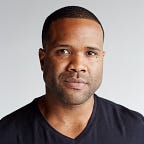“WAP”: A Father’s Dilemma
me vs. my daughters
A series that reflects on the dynamic conversations I have with my three black daughters: Nevaeh (15), Kendall (13), and Braelynn (11).
I like to think I have an open relationship with my three teenage daughters that rely on truth, communication, and love. To that end, I’ve never been the type of father that has encouraged censorship, specifically as it relates to the music they listen to. I think it’s because I’m a recording artist myself and censorship of art in anyway isn’t in my purview. Plus, If my kids are anything like I was when I was a teenager, they probably would just listen to their favorite songs in private anyway.
My wife and I are huge hip hop fans and my daughters have always been allowed to listen to uncensored rap music at home and in private on their devices. It allows a connection between us where censorship could’ve inserted a chasm in our relationship. The idea is that our kids don’t have to hide who they are or what they like. We encourage them to express themselves freely in our home and out in the world, but that freedom comes with certain challenges.
Last weekend, my two eldest daughters and I were washing our car while listening to a Spotify playlist. Then Cardi B and Megan Thee Stallion’s “W.A.P (Wet A$$ P***y)” song started playing. Cardi begins, “Beat it up, ni**a, catch a charge. Extra large and extra hard.” NOPE!! I immediately reached for my phone to change the track because there was no way I would listen to that song with my teenage daughters singing along. They got upset because that song is hot right now and they both really vibe to it. But as a father, that song is obviously very sexually explicit and makes me uncomfortable. So I changed the song and got an earful from them. The next song was “WHATS POPPIN” by Jack Harlow, Tory Lanez, and Da Baby where the three male rappers trade sexual innuendos back and forth dripping with toxic masculinity. It was a clear example of the double standard levied against female rappers, and my daughters pointed it out later that evening at dinner.
My eldest, Nevaeh, said that male rappers use lyrics that often objectify women, yet I don’t turn off the music or stop them from listening. Why is W.A.P so different? It was a good question that I really couldn’t answer. It was obvious at that moment that I was being hypocritical by allowing male rappers free rein to recite hyper sexualized lyrics in my household while censoring their female counterparts. I know it’s a double standard and it left me feeling conflicted, mainly because I preach freedom of expression and speech in my home. However, I just don’t feel comfortable washing the family car while my daughters sing “Wet A** P***y” in chorus together. What does that say about me?
